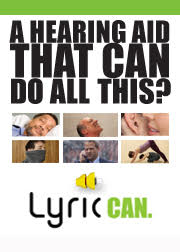Archives
Are your child’s toys damaging their hearing?
For more information about noisy toys, click here!
Hearing is the key to good health
Bad hearing could lead to issues like memory problems and heart disease, new research has discovered. We often take good hearing for granted and just accept that, like our eyesight, it fades over time. However, new studies suggest hearing loss can be linked to major health issues like memory problems and heart disease, so it might be time to listen up and get serious about your ears. Whether it’s the result of too many rock concerts in our youth, genetics or the constant buzz of everyday life, we’re all susceptible to hearing loss. The trick is catching it early and doing something about it. Robert Beiny, the UK and European Audiologist of the Year and Director of the Hearing Healthcare Practice in Hertfordshire, UK, is among the hearing specialists urging people to take their aural health more seriously. “What’s hearing got to with it?” he muses to Cover Media. “Wellness is generally used to mean a healthy balance of the mind, body and spirit that results in an overall feeling of well-being. It takes more than an apple a day to keep the doctor away. Fitness, exercise and diet all play a part – as does hearing well. “Changes in hearing occur so slowly that we fail to notice subtle changes in how we enjoy company and interact with workmates. Evidence links these changes with an increased risk of heart disease, diabetes and memory loss. Our character alters and we can suffer increased anxiety, social isolation, depression and insecurity.” There are also huge benefits, personally and professionally, in taking care of your hearing. Robert notes that with improving our listening, other aspects such as family relationships and mental health are also boosted. “With research now confirming people who hear well earn higher salaries and have better employment opportunities, it makes sense to your general well-being to keep your hearing in tune,” he adds. So maybe it’s time to track down a local audiologist and undergo a hearing test just to make sure you’re A-OK. As the expert says: “Add hearing to your general health check list along with eye exams, visits to your dentist and routine check-ups with your GP.” And don’t fret about the future if hearing loss already is a problem; technology will be your friend. The days of ugly hearing aids and ear antennas are long gone and those contraptions your grandfather once stuck behind his ear are old school. The help available these days is subtle and largely invisible. Call Elgin Audiology today to book your hearing test! © Cover Media Group 2015
Hearing loss undertreated, despite evidence that hearing aids reduce depression, anxiety
Hearing loss is undertreated among adults, despite evidence that hearing aid technology can reduce depression and anxiety and improve cognitive functioning, according to a presentation at the American Psychological Association Annual Convention. “Many hard of hearing people battle silently with their invisible hearing difficulties, straining to stay connected to the world around them, reluctant to seek help,” David Myers, PhD, of Hope College in Holland, Michigan, said in a press release. David Myers A study from the National Council on Aging with a cohort of 2,304 individuals with hearing loss found that participants who did not use hearing aids were 50% more likely to experience sadness or depression than participants who did wear them. Additionally, individuals who used hearing aids were significantly more likely to regularly participate in social activities. Another study, published in the Archives of Neurology, found that hearing loss may be a risk factor for dementia. Years of sensory loss may increase susceptibility to dementia, according to the study’s researchers. Further, social isolation, which is common among individuals with hearing loss, is a known risk factor for dementia and other cognitive disorders, Myers said. According to the National Center for Health Statistics, individuals with hearing loss wait an average of 6 years from the first symptoms of hearing loss before seeking treatment, and adults aged 20 to 69 years who have hearing loss are 50% less likely to use hearing aids compared with adults aged 70 years or older. In addition to denial, vanity and less awareness of how much they are missing are reasons for this delay, according to Myers, who has hearing loss. “Anger, frustration, depression and anxiety are all common among people who find themselves hard of hearing,” according to Myers. “Getting people to use the latest in hearing aid technology can help them regain control of their life, and achieve emotional stability and even better cognitive functioning.” Reference: Myers D. A quiet world: the psychology of hearing and hearing loss. Presented at: American Psychological Association Annual Convention; Aug. 6-11, 2015; Toronto.
Do you know these five trending facts about today’s new hearing aids?
They can be invisible now. Many new hearing aids sit discreetly and comfortably inside the ear canal, providing both natural sound quality and ease of use. They automatically adjust to all kinds of soundscapes. Technological advances with directional microphones have made hearing aids more versatile than ever before in a broad range of sound environments. You can enjoy water sports and sweat while wearing them. Waterproof digital hearing aids have arrived. This feature is built into some new hearing aids for those concerned about water, humidity and dust. This feature suits the active lifestyles of swimmers, skiers, snowboarders, intensive sports enthusiasts and anyone working in dusty, demanding environments. They work with smartphones, home entertainment systems and other electronics. Wireless, digital hearing aids…
Next-generation hearing aids have significant improvements
Embedded computer chips make hearing aids come in loud and clear By: Drs. Oz and Roizen Health Advice, Published on Tue Apr 16 2013 Q: I’m turning 60 next week, and maybe all those rock ‘n’ roll concerts I went to are finally taking their toll on my hearing. I think I need a hearing aid, but I don’t want to look like my grandmother. Any advice? — Adele, C., Boulder, Colo. A: Oh, yes. For you—and all the rock ‘n’ rollers in their 60s and 70s—the answer to “Tommy, can you hear me?” finally might be yes, because of the amazing breakthroughs audiologists are making these days. For those of us old enough to have experienced the British Invasion (The Beatles, The Rolling Stones,…
Protect Your Child’s Hearing
Understanding the Threat of Noise Noise is one of the greatest threats to your child’s hearing. But unlike many causes of hearing loss, preventing hearing damage from noise is largely within our control. Noise threatens our hearing because we hear sound when delicate hair cells in our inner ears vibrate. This creates nerve signals that the brain understands as sound. If we overload these delicate hair cells with exposure to loud noises, we damage them. This results in sensorineural hearing loss and often tinnitus—or “ringing in the ears.” The hair cells that vibrate most quickly—and that allow us to hear higher-frequency sounds like birds singing and children speaking—usually become damaged, dying first. Noise in our everyday lives may be damaging even to a child’s hearing,…
Father’s Day: Give Dad the Gift of Hearing
Father’s Day is a great time to think about the crucial role that dads play in the lives of their children and grandchildren. So, before reaching for this year’s tie, hand-tool, or trinket, how about a gift that will really strengthen the connection between you and your father — the gift of better hearing? While it may sound unusual, there’s probably no better gift for a dad with an untreated hearing loss than one of the new, digitally-advanced, and remarkably small hearing devices. “Think of it as the world’s smallest power tool,” said Sergei Kochkin, Ph.D., executive director of the Better Hearing Institute. “Today’s hearing devices can amp-up your dad’s hearing and strengthen his ability to communicate clearly and easily with his family.” Hearing loss…
What is the Best Hearing Aid for You?
There is nothing more important to the manufacturers of hearing aids and your Audiologist than your satisfaction with their product and services. Like any smart professional, they know that satisfied clients lead to repeat business and to positive word-of-mouth advertising for their products. Because their customers often ask the same question: What is the best hearing aid for me? The answer is that the best hearing aid is a device for one or both ears that best helps you address a hearing impairment. The hearing aid industry is interested in delighting you, in meeting your needs and finding the best hearing aids for you. The industry is people-oriented in that it allows significant interaction and communication between the person with the hearing loss and the…


